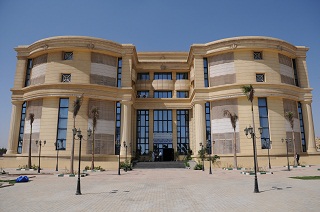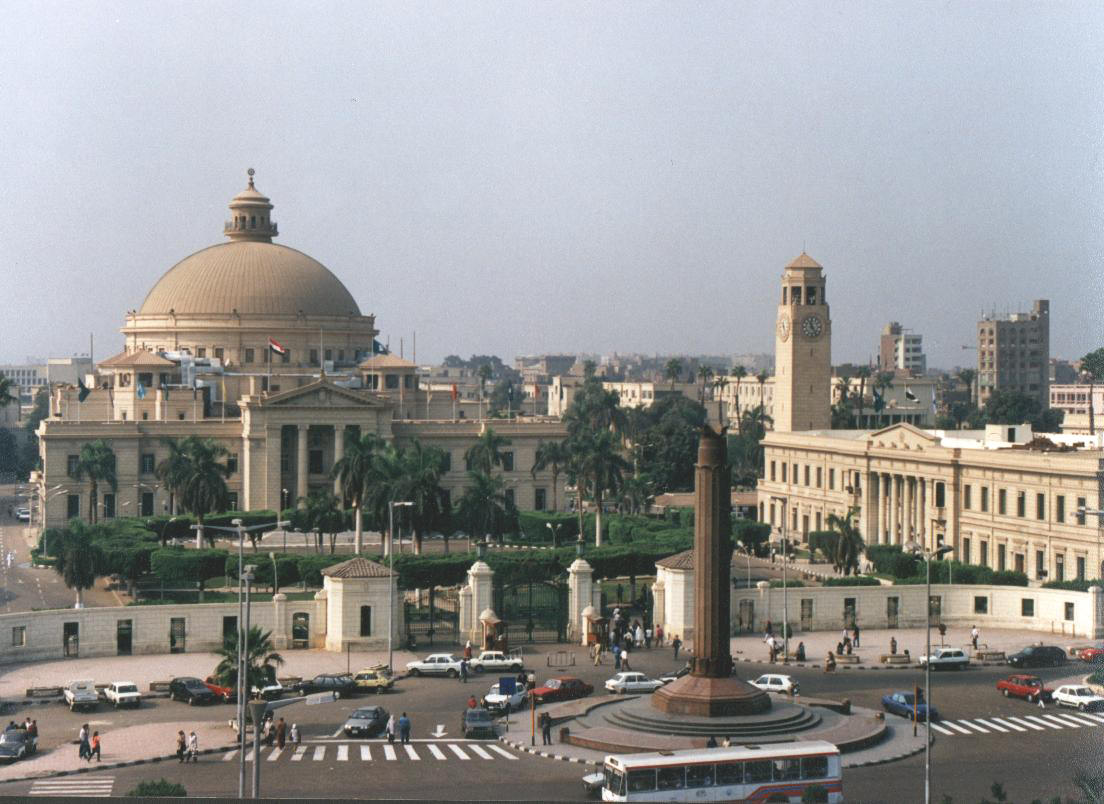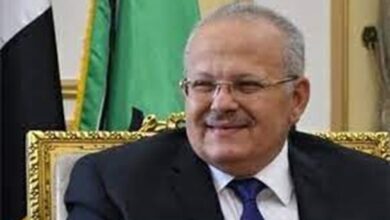Cairo University security has created a new policy that is causing some people to recall the limitations imposed on campus activities by State Security under former President Hosni Mubarak's regime.
Motaz Abu Shady, head of campus security at Cairo University, sent a memo to faculty heads informing them of a new policy to be enforced starting this week. Under the policy, all activities that might involve people who are not affiliated with the university must receive prior approval from campus security.
Events such as speakers, panel discussions, conferences, training events, and even graduate-level thesis discussions must now go through campus security beforehand.
The decision raises fears that the university could return to a security-oriented, closed-door atmosphere that curbs free speech and freedom of association. Opponents of the decision say that it goes against Article 317 in the law regulating universities, which says that the responsibilities of campus security are limited to on-campus security and protecting university facilities.
Awatef Abdelrahman, a journalism professor at the university, is also a member of the 9 March Movement for the Independence of Universities — a faculty-led movement started in 2004 to push for on-campus freedom.
“[Campus security] should not be organizing events on campus, whether it is academic or political,” Abdelrahman said.
The memo does not mention intentions to curtail specific activities, but Abdelrahman views it as a potential threat to intellectual freedom on campuses.
Many see the new policy as a blow to last month's decision to remove Interior Ministry and State Security officials from Egypt's universities. Any security organization no longer has the right to dictate what kind of events will happen on campus grounds. This is a change from rules followed under Mubarak's regime, when everything from on-campus parties to student unions were manipulated by State Security.
“Unfortunately, it may represent the same security-oriented mentality, whereby anything that can cause disturbance or incite students politically isn’t allowed. It curbs our right to freely pursue our intellectual and security endeavors,” Abdelrahman said.
Mohamed Abu al-Ghar, the founder of the March 9 Movement, publicly condemned the memo. He said that the group refuses to abide by it, since the organization of on-campus events is outside campus security’s jurisdiction.
In the memo, campus security noted it made the decision because in the past, out-of-campus visitors who appeared for specific events "engaged in inappropriate activities." On-campus sources say the memo was issued after a group of students decided to invite the Salafi cleric Mohamed Hassan to speak, causing controversy among opposing student groups.
Others see it as a continuation of Cairo University President Hossam Kamel’s pre-revolution policies, which they say used campus security to repress political dissent. Numerous protests have erupted in different faculties at Cairo University, calling on Kamel and other university leaders to step down because of their complicity with the former regime. While campus security has not overtly intervened against these protests, many students have complained about repeated harassment by them.
“Students have come to us with many complaints since the revolution. Others need to realize that Kamel’s repressive policies are still in place, and that’s why students want him removed,” said Fatima Sirag of the Association for Freedom of Thought and Expression (AFTE).
AFTE is currently compiling a report to be released next week on the performance of university security since the revolution. Members of the group say that the report, which is part of the AFTE’s Campaign for the Defense of Students, will document numerous instances and individual accounts of oppressive campus security activities.
“The role of campus security should be to cope with these events, not give security clearances and approvals on whether they should happen," Sirag said.
She said she fears the university may use the new policy, in conjunction with the yet-to-be implemented law criminalizing demonstrations that threaten work conditions, to ban university demonstrations.
Even though campus security is no longer protecting Mubarak’s system and shouldn’t feel external pressure, the mentality instilled in security staff during those days remains, governing how they think, student activists say.
“Instead of figuring out how to deal with potentially complicated security situations, such as the security apparatus, they feel that they have the right to cancel these events altogether,” Sirag said.
Other universities have yet to follow the lead of Cairo University’s campus security in issuing an official memo, but AFTE will report on various other security apparatus infringements in its coming report.




